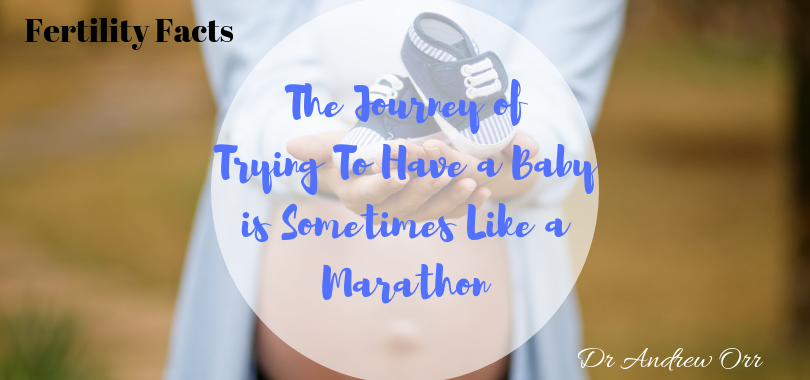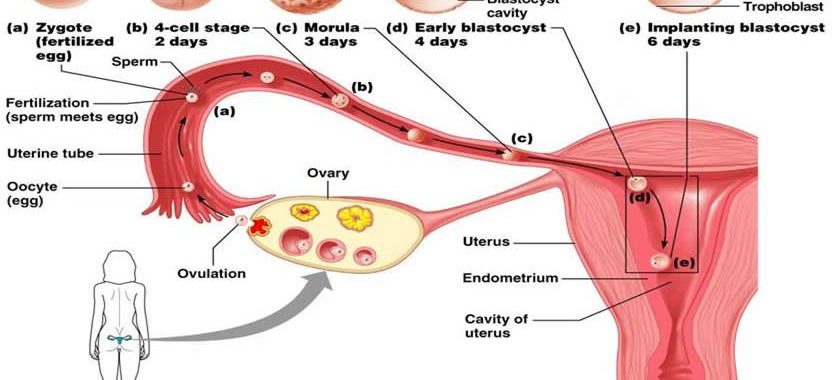The word “Barren” comes originates from the French word ‘Brehaigne’, which means not producing, incapable of producing offspring, infertility, infertile; sterile.
Sounds terrible doesn’t it?
Fortunately very few women are ‘sterile’ and the word “infertility” is often misused in our modern society. Nobody is truly infertile, unless they actually have reproductive organs missing, or have genetic abnormalities that will actually prevent conception from happening etc. When a couple is having trouble conceiving, we should really use the word “sub-fertility” instead of “infertility”
The problem with talking fertility, sub-fertility, or infertility is that we often reference, target, or even blame the woman. Yes, women are often the blame of not being able to conceive a child and therefore the myth of the barren woman still runs deep and is very much in existence and kept alive by all concerned today in our modern world.
But is conception and the ability to conceive a child inherently the fault, or responsibility of the woman?
The answer to that is “No!”, but there is still this expectation, or focus, that not being able to conceive all falls back on a woman. Sometimes women actually wrongly blame themselves, or wrongly take on that responsibility too. Some women will even take on that burden, to protect a partner, who may actually be the main issue.
Then we now have an area of medicine that has its focus as being the woman, because women are the primary driving force for wanting to have a child. Hence the vicious cycle continues in this terrible loop and then many, practitioners included, buy into the myth of the barren woman and so the cycle continues over and over again.
Well, I am here to tell you that women are not the only part of having a child and that men play just as big a part when it comes to fertility issues and not being able to conceive.
No matter what you get sold, or what BS (bullshit) you are sold, while pulling on your ‘I need a baby heartstrings’, to make you part with your hard earned money, the fact remains, and will always remain, that it takes a sperm and an egg to make a baby. That is basic biology 101 and no matter what someone tries to tell you, sperm quality is just as important as egg quality in this equation.
Every day I see practitioners, both medical and in complementary medicine, focussing in on women as the primary focus of fertility and actually feeding the myth of the barren women by their very actions.
Many times the men are overlooked, or ignored, or completely disregarded in the fertility equation. Not only is this unethical, to just treat and focus on the women when it comes to fertility treatment, but it is highly negligent as well. Men are not born with an inherent right to automatically be able to conceive and worse still, the male sperm levels have fallen by as much as 60% in the last 70 years, with sperm quality levels said to be dropping at an alarming rate.
So why is the focus, the burden, the guilt and the whole emotional baby roller coaster left solely to women?
Well, I have explained that practitioners are to blame, the fertility profession is to blame, society is to blame, guilt is to blame and last of all men are a big part of the issue too.
Men are often to reluctant passengers in the fertility journey and are often very happy to bury their heads in the sand and pass the responsibility of not being able to conceive onto a woman. Then many men are told their sperm is fine, when in fact it is far from being fine.
Over 50% of fertility issues are related to male factors and up to 85% of miscarriage issues may be related to male chromosomal, or DNA issues related to sperm. As I said before, research has now shown that the male sperm quality has fallen by up to 60% over the last 70 years and is actually on the decline. Men are often the bigger part of the fertility picture and it isn’t just the woman at all.
Semen analysis parameters are based on what is needed for Assisted Reproduction (IVF, IUI, ICSI) , not based on what is needed for natural conception and this is where some of the biggest issues lay.
Misinterpretation of semen analysis and misinterpretation of parameters have many men believing they have OK sperm, when in fact it is far from being OK. With modern procedures such as ICSI, we only need a few single sperm to be able to fertilise eggs and this can still be considered ok, because at least there was some sperm to fertilise the egg in the first place.
A few single sperm, or a few hundred sperm, or even a few thousand sperm is not OK when it comes to natural conception. We actually need a few hundred million sperm for it to be OK and even then they need to be motile and they need to be swimming properly (rapid progressive) and actually be of good shape (morphology)
While a semen analysis is often the first part of male fertility evaluation, it is also very limited. While we can look at morphology, motility, concentration, count etc, it does not tell us about the actual quality of the sperm inside. Many sperm may look ‘OK’ via a semen analysis, but inside their DNA integrity is poor and there are high amounts of DNA fragmentation and this can only be measured by a DNA fragmentation analysis. Even then, each time a man ejaculates, the quality of the sperm will be different and can differ by up to 20% in each ejaculate.
We also know that what a man eats, drinks and even his physical and emotional health will affect his sperm quality and that a man’s physical, dietary and emotional health can be passed onto his offspring through the sperm. This is why it is important for a man to get his physical and dietary and emotional health in check way before he tries to conceive a child with his partner.
We always say that the healthier a man is, the healthier his sperm is and the healthier the woman is, the healthier her eggs will be also. A healthy man and a health woman produce healthy babies.
I have been assisting couples with fertility and pregnancy for over 20 plus years now, and helped over 12,500 plus babies into the world, and I can tell you that conception is not just about the woman. It gets back to basic biology 101 that it takes a sperm and an egg to have a baby.
Even when couples are having issues trying to conceive, or doing IVF, or however they are trying to conceive, there will be some issue on the man’s side and the woman’s side. Unless there is absolute infertility on one side, or the other, there will always be a bit of both the man and woman to work on to assist in being able to conceive.
While the myth of the barren woman runs deep in society, fertility clinics and through the guilt handed down from their fellow sisters and mothers, fertility issues and the right to be able to conceive ‘does not’ fall solely into the hands of a woman, far from it.
Men are an equal part in the fertility equation and men need be held just as accountable when it comes to trying to have a baby, or if there are difficulties in conceiving.
No matter what anyone tells you, a man needs to be part of treatment, management and support of the journey to have a baby. This is a big part in my multi-modality fertility program.
Fertility isn’t just the responsibility of the woman, it is the responsibility of the man as well and I make sure both the man and the woman are properly investigated, clinically managed and helped with treatments as well.
If you do need help with having a baby, then please give my friendly staff a call and find out how my fertility program may be able to assist you
Regards
Andrew Orr
-Master of Reproductive Medicine (MRepMed)
-No Stone Left Unturned
-The International Fertility Experts











